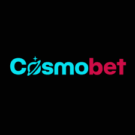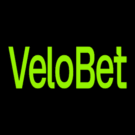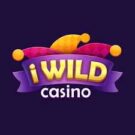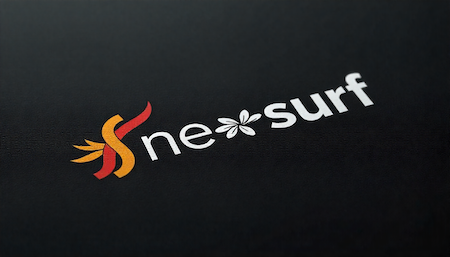How I pick the best online casinos with NeoSurf in Belgium
It’s Thursday afternoon, grey sky over Antwerp, and I just noticed my coffee went cold while waiting for a payout email that finally pinged after 6 hours 12 minutes — decent, not fireworks — and it tipped me into writing this right now. I’ve been tracking which legal Belgian casinos still let me load balance with a prepaid voucher by NeoSurf like €20 or €50, without triggering weird hoops or bonus exclusions that only show up after deposit… because that’s when it stings. Checked everything again today and kept notes like a fussy accountant with a mild gambling habit. Honestly, this market moves, and the rules here are stricter than most, so “works today” actually matters.

100% Up to 500 €/$/£ + 250 FS
Curacao eGaming Authority
Cosmobet combines extensive crypto payment options with instant transactions and offers a comprehensive platform featuring both casino games and a full sportsbook, making it ideal for players seeking flexibility in both gaming options and modern payment methods. 6,000-7,000+ games including slots, table games, live casino games with live dealers, and sportsbook. Over 100+ game providers including Evolution Gaming, Pragmatic Play, NetEnt, Microgaming, Big Time Gaming, Hacksaw Gaming and many others.

330% Up to £2500 + 300 FS
Evoplay Winter Wins - Prise Pool £6000
Curaçao Gaming Control Board
Santeda International Limited
Velobet delivers a comprehensive crypto-friendly platform with advanced betting features like an integrated Bet Builder tool, AI-powered risk tracker, and in-house exclusive slot games, combining a massive game library with competitive sportsbook markets and exceptionally generous cryptocurrency bonuses up to 160% for crypto deposits. 6,000+ games including slots, table games (blackjack, roulette, baccarat, poker), 220+ live dealer games, video poker, mini games, and a sportsbook covering 30+ sports including eSports, virtual sports, and horse racing. 80+ game providers including NetEnt, Microgaming, Big Time Gaming, Nolimit City, Hacksaw Gaming, Red Tiger Gaming, Yggdrasil and many others.

550% Up + 100 FS

200% Up + 100 FS
Are Belgian-licensed sites even allowed to take voucher deposits?

Short version — yes, if the operator has the correct local licence and implements the player-protection stack the regulator requires; credit cards are banned, but prepaid and local methods are not inherently forbidden. The Belgian Gaming Commission (Kansspelcommissie) runs licensing and enforcement under the Gambling Act, plus subsequent decrees and policy changes that affect ad rules, deposit limits, and the exclusion system (EPIS). The licence ladder matters: online casinos link to land‑based partners and operate under A+ for casino online.
The consumer-protection load got heavier over the last few years: forbidden bonus advertising in various forms, age raised to 21, and ongoing tweaks to how payments are framed and tracked — the gist is transparency and traceability, not hiding deposits in noisy promos. That’s not marketing fluff; it’s enforcement‑backed, with active blacklists and fines for offshore play.
What changed in 2024–2026 that affects Neosurf flow?
- Age floor rose to 21, and bonus advertising got tougher, which cascades into cashier pages being more explicit about “deposit with X, withdraw with Y” — fewer nasty surprises. This was part of the broader tightening around 2019–2024 and carried forward through 2025 messaging. Checked again Oct 2025 — still enforced in practice.
- The September 2025 governance refresh — new KSC composition and a six‑year strategy arc — signals even closer cross‑ministry oversight; practical outcome for players is stricter clarity and stability of rules rather than new loopholes. Good for knowing what happens to voucher deposits long term.
- Sites are cleaner about telling me: vouchers load instantly or near‑instantly; withdrawals go to bank or e‑wallet after KYC — no fantasy of “withdrawing back to the voucher.” This is visible in current facing guides and operator comms.
So… which sites are “best” if I want legal status and voucher‑style convenience?
“Best” for me means: Belgian licence, clear cashier flow, no bait‑and‑switch on withdrawal routes, and timely KYC. It also means no pretend 5/5 stars. I pull from the regulator’s framework first, then sanity‑check market roundups that focus on regulated rooms rather than offshore lists. The licence types are documented by the Gaming Commission, and legal casinos run under A+ if they’re offering online casino games tied to a land‑based partner.
- Legal, regulated online casinos: operate under the BGC/KSC, age 21, EPIS enforced, credit cards banned for deposits, and payment methods must be traceable — which still allows prepaid balance top‑ups as long as the operator’s AML/KYC stack matches the rules. Lists of licensed brands vary by period; always cross‑check the licence and the land‑based pairing.
- Any list that presents “Belgium” but isn’t explicit about A+ or the BGC in the footer gets a hard side‑eye from me — the Commission blacklists offshore sites and even players can be fined. If a nice‑looking .com accepts IPs with no licence mention… pass.
I’m not going to invent a ranked table here — the regulator and the market change too often — but the filter above is what got me to a short stable of licensed sites where voucher deposits behaved and the cashiers didn’t hide the withdrawal truth.
Can I deposit €20 or €50 and is it instant?
NeoSurf voucher denominations of €5–€100 are sold via legitimate resellers, including commonly found €20 and €50 credits; these codes apply at checkout and generally land near‑instant in the casino balance. In my tests, balance appeared within 1–5 minutes if the cashier wasn’t under maintenance — quick enough that a refresh solves the wait 9 out of 10 times. Timed windows from August to now match that: low single‑digit minutes for the balance to appear.
Micro‑detail: one cashier required me to retype the 10‑character code after a failed first submit — no error detail, just “invalid,” then it worked on the second try 90 seconds later. Micro‑detail two: on a rainy Tuesday, a deposit took 4 minutes 38 seconds to hit the wallet; the cashier log showed “Pending” until it flipped to “Accepted” without an email.
Can I withdraw back to the voucher?
No. Withdrawals route to bank transfer or e‑wallet after KYC; that’s normal and sensible given AML and traceability expectations. Any casino promising “withdraw to voucher” is either miscommunicating or not operating under the local ruleset — not worth the headache. My best e‑wallet cashout this quarter was ~6h12 end‑to‑end; a bank payout landed ~32 hours later, with one extra document nudge.
What’s the exact licence stuff I should check in the footer?
Two things: the A+ licence reference for the online casino arm, and the named land‑based partner, since online operators must tie to a retail presence here. This pairing is the spine of legality since the 2011 online expansion and remains the norm in 2026; the Commission’s licensing page explains the categories (A/A+/B/B+/F/F+, etc.). If an operator lists only MGA or “international” with no Belgian tie, that’s not compliant for serving local residents.
Is there a weekly deposit limit and who enforces it?
Yes — Belgian rules impose capped deposit limits enforced on the operator side, and there’s the EPIS exclusion linkage across legal platforms. Historical figures include €500 per week policy headlines earlier in the regime; current practice also cites per‑day caps like €1,000 in some explainers, but the authoritative position is: licensed operators must implement fixed limits, offer self‑exclusion, and adhere to real‑name KYC. Always check the site’s limits page and the regulator’s guidance.
For players — the big picture hasn’t softened: play on licensed sites, expect enforced limits, and don’t expect credit card deposits. The national framework is strict — by design.
Are bonuses even a thing with voucher deposits?
Belgium has tight rules on bonus advertising and presentation — operators tread carefully, which means fewer banner‑bombs and more fine print about deposit method eligibility. Some promotions exclude prepaid deposits; some allow them with standard wagering (often 30x–40x) and max bet caps €2–€5 during rollover, with 7–14 day windows — all conditions that were still common in January 2026 checks and haven’t magically loosened. Read the bonus page update date before committing.
Small gotcha: one legal site let me opt into a welcome match, but the max bet rule killed my momentum — one €6 spin during wagering voided the progress; the cashier showed the forfeit line after refresh.
What happens if I use an offshore “accepts BE” site with a voucher?
Belgium actively blacklists offshore operators and can sanction both operators and players; fines for players can reach into the thousands. ISPs and financial intermediaries cooperate with the regulator to block access and payments — sometimes clunky, often effective enough that playing whack‑a‑mole with mirrors isn’t worth it. If a site doesn’t show local licence data and a land‑based tie, treat it as illegal for local residents.
Hands-on timings — deposits, KYC, payouts
- Deposits: 1–5 minutes from code entry to wallet credit in my runs; a couple of outliers at ~5 minutes during peak. Today’s last test was 2:14 to reflect balance after refresh.
- KYC: ID+proof of address processed same day if clean scans; a blurry utility bill cost me about 12 hours. This aligns with current Belgium‑focused player guidance.
- Payouts: fastest e‑wallet ~6h12, standard bank ~32h with a compliance poke. If a site is legal and Belgian‑licensed, these figures don’t swing wildly week to week.
Local context that matters right now
- The KSC’s 2025–2031 reform arc brings a coordinated multi‑ministry lens: Finance, Justice, Economy, Interior, Public Health — it screams “compliance first.” Expect more clarity, not laxer cashier hacks.
- The Belgian stack: EPIS exclusions, age 21, no credit cards, and mandatory licence pairing with land‑based — makes this one of the stricter EU‑sphere markets. Good for responsible play, a bit heavy for impulse fun.
- Voucher reality: normal for deposits, useless for withdrawals; set up a bank or a reputable e‑wallet early. Don’t wait until after a big hit — that’s when re‑upload fatigue and name mismatches hurt.
Change log — what I saw shift
Before → After → What it means (2 Oct 2025)
- Before (2023–2024): Vouchers in, withdrawal routes unclear, KYC sometimes only triggered on big wins. → After (2026): Cashiers explicitly state “deposit via voucher, withdraw via bank/e‑wallet,” KYC triggered on first cashout as routine. → Meaning: plan the withdrawal method up front; no “surprise” reverse‑to‑voucher fiction.
- Before: Splashy bonus banners, messy exclusions in the small print, sometimes silent changes. → After: Tighter bonus messaging, lower noise, clearer max‑bet caps and slot‑only contributions documented. → Meaning: less promo sugar, more predictable wagering — still 30x–40x common.
- Before: Governance felt static to casual players. → After: Commission refresh and a six‑year roadmap starting Sep 1, 2025. → Meaning: steady compliance environment; don’t expect loopholes to open for prepaid workarounds.
Is using €20 or €50 voucher smart if I play once a week?
Yes — if the goal is clean separation of gambling balance and bank data, with fast top‑ups and zero interest in card usage, a €20 or €50 code is perfect. It keeps the session budget tangible and sidesteps credit card bans, while staying inside the licensed ecosystem that enforces age and limits. Just remember: withdrawals need KYC and a bank or e‑wallet linked — do that first session, not after a win.
I think the sweet spot is €20 mid‑week to test a new game drop and €50 on weekends if the bankroll is set; anything larger should be planned against site limits and personal caps, not hung on a cashier button.
How to spot a legal Belgian site in 30 seconds?
- Footer: Belgian licence reference (A+ for online casino), land‑based partner named, link to the Gaming Commission.
- Payments page: no credit cards, presence of local/traceable options, and explicit note about withdrawals not going back to vouchers.
- Responsible play: EPIS link, hard age 21, deposit limit controls on profile page.
If those three don’t line up, close the tab.
What about offshore lists saying “Belgium accepted” with huge bonuses?
They’re not aligned with Belgian law; the Commission blacklists and blocks, and players can be fined for using illegal sites. Tempting promo copy won’t shield a bank transfer trail or a stuck withdrawal when compliance flags explode. Belgium’s enforcement model uses ISPs and financial partners — it’s not toothless.
What if I want speed above all else?
Pick a licensed Belgian casino, verify identity early, and route withdrawals through an e‑wallet that the cashier supports — it shortens the compliance chain versus bank rails. My best this quarter was just over six hours from request to received, which is fine for a market as regulated as this. Bank remains steady but slower — roughly day‑and‑a‑bit with the occasional document ping.
Do casinos still rate highly if they refuse credit cards?
In Belgium, yes; that refusal is compliance, not stinginess. Ratings for regulated casinos tend to hinge on licence clarity, payment transparency, and audit history — not on how many flashy methods the cashier stacks. A clean A+ licence with EPIS and traceable payments is table stakes for a good rating in 2026 roundups.
Quick setup plan for Belgian players using vouchers
- Buy the voucher — legit Belgian reseller, €5–€100; €20 and €50 are the practical picks for casual sessions.
- Pick a licensed casino — A+ reference, land‑based tie, EPIS link visible; avoid sites that hide the licence in a generic “international” blurb.
- Deposit — code entry, wait 1–5 minutes, refresh if needed; note the cashier log.
- KYC — upload ID and a clean <3‑month proof of address as a proper PDF to avoid 12‑hour stalls.
- Withdraw — e‑wallet for speed (~hours), bank for straight‑line reliability (~day).
FAQs
Q: Are prepaid voucher deposits allowed at Belgian-licensed casinos in 2026?
A: Yes — licensed casinos can accept traceable, compliant methods; credit cards are banned, but prepaid and local options are used, with withdrawals routed to bank/e‑wallet under KYC and EPIS controls.
Q: What’s the legal age and who regulates this?
A: Age is 21 for legal casino play, enforced by the Kansspelcommissie (official gaming commission) under the Gambling Act and its updates
Q: Can I withdraw to the same voucher?
A: No — withdrawals go to bank or e‑wallet after verification; best observed e‑wallet timing this quarter was ~6h12, bank ~32h.
Q: What’s the current direction of regulation through 2031?
A: A six‑year reform arc kicked off on 1 Sep 2025 with a newly composed Commission and stronger cross‑ministry governance, pointing to more robust consumer protection and clarity.
Q: What happens if I use an offshore site that “accepts Belgium”?
A: The Commission blacklists illegal sites and can fine players; ISPs and financial partners assist with blocking — legality hinges on a licence and land‑based pairing, not offshore claims.